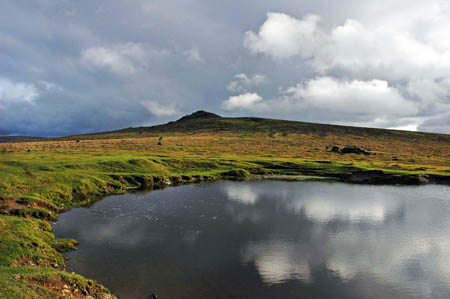The moorland environment in the South West will benefit from a £4.1m grant from a water company.
South West Water has provided the cash, which will be shared between the Dartmoor and Exmoor authorities, and will help restore blanket bog, to improve water quality and help increase the potential of the mires to store carbon.
Dartmoor National Park Authority has christened its scheme the Mires on the Moors Project. It will work with the Environment Agency, Natural England and the Duchy of Cornwall on the scheme, with co-operation from Dartmoor commoners.
The Ministry of Defence, which uses large area of Dartmoor for military purposes, will also be involved in the project.
Work will include blocking ditches and erosion gullies to create shallow pools and promote the regeneration of moorland bog vegetation. The aim is to reduce the damaging effects of old drainage ditches, former peat cuttings and erosion gullies.
Suzanne Goodfellow, director of park management at Dartmoor National Park Authority said: “A pilot blanket bog restoration project has been running on Exmoor over the past few years and some limited trials have taken place on Dartmoor.
“The new funding provides a wonderful opportunity to take this work forward. Exmoor has already benefited from the restoration of 326ha [806 acres] of moorland to date. On Dartmoor, this funding will allow us to restore areas of high quality blanket bog so that they can provide a priority habitat with unique plants and birds as well as a water resource and carbon store.”
Andy Guy, spokesperson for Natural England said: “Restoring blanket bog vegetation on Dartmoor and Exmoor will protect the peat that lies in layers beneath the surface. This will both prevent further losses of carbon dioxide from the peat to the atmosphere and also enhance the capacity of the bog to lock up additional stores of carbon.
“The Mires on the Moors project therefore shows fantastic creativity and partnership in responding to the threat of climate change.”
The blanket bogs are internationally important habitats, supporting species such as the dunlin and protecting water quality for fish, including salmon. The project will also look at how the work affects the speed of rainfall run-off from the moors, important for mitigating the effects of flooding.
The Mires on the Moors Project will run from April 2010 until March 2015.

![[CC-2.0]](/lib/img/layout/cc-attr.gif)